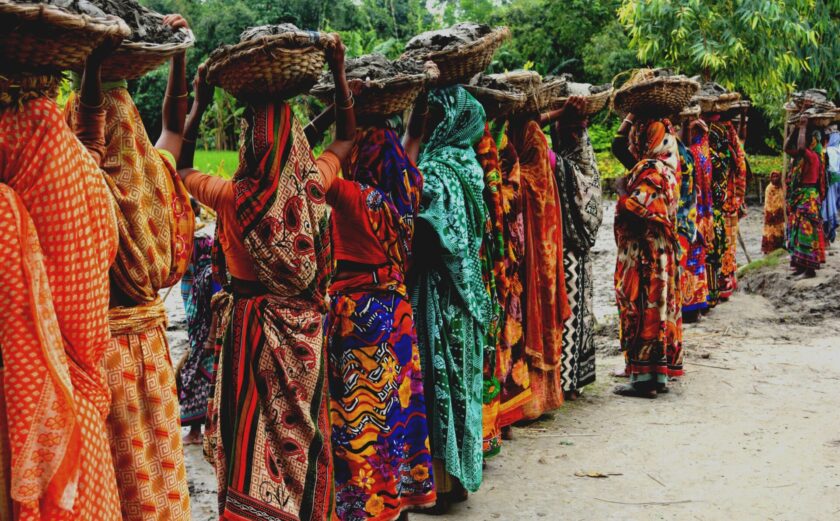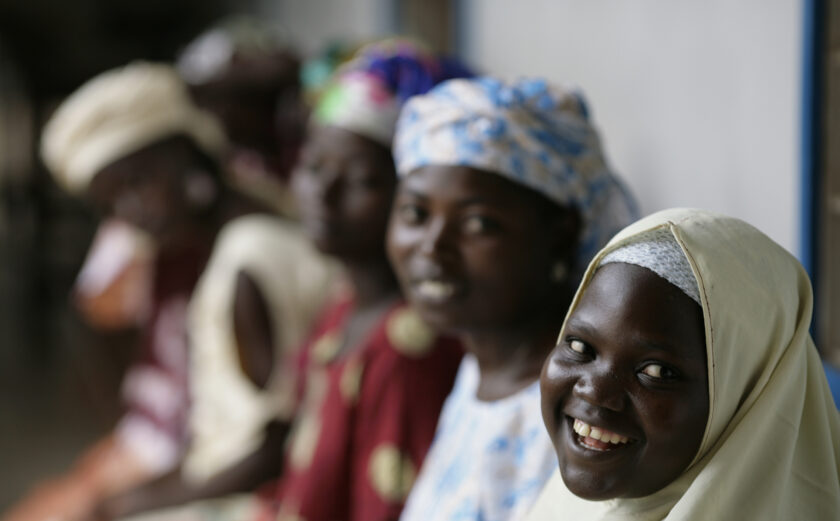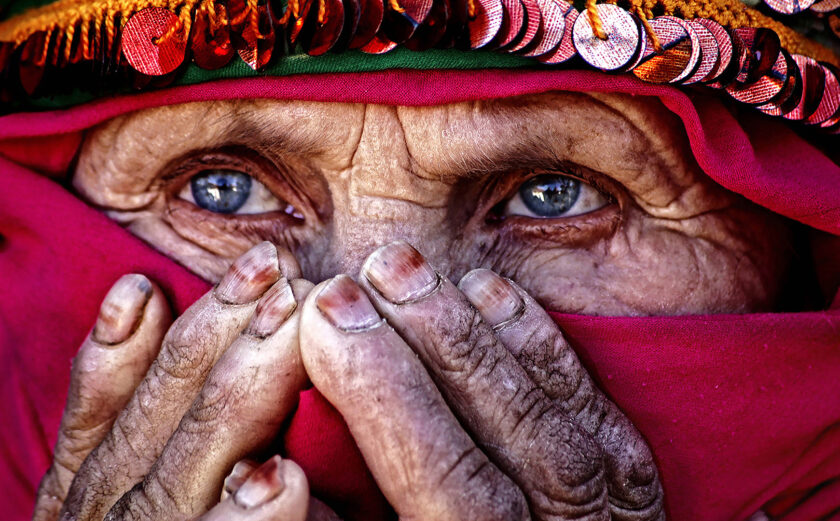
Spotlighting HAI’s Holistic Approach to PSEA for Migrant Populations in Colombia
In Celebration of World Refugee Day
June 20 marks World Refugee Day, a day designated by the U.N. to honor refugees around the world. This year’s theme is “Together we heal, learn and shine,” and calls for greater inclusion of refugees in health systems, schools, and sports.
Without proper protections in place, refugees are at risk of experiencing sexual exploitation and abuse (SEA). Our Members are working diligently to prevent and respond to SEA among refugee populations.
In honor of World Refugee Day, InterAction is highlighting Heartland Alliance International’s (HAI) holistic approach to ensuring that refugees in Colombia are protected from and able to respond to SEA.
In Colombia, HAI is working to respond to the ongoing influx of approximately 1.7 million Venezuelan refugees and migrants fleeing Venezuela’s worsening political and economic crisis. Despite the rapid spread of COVID-19, the proliferation of several new armed groups, and the expansion of paramilitarism across Colombia, the country remains the primary destination for Venezuelan migrants and refugees. Among the refugees and migrants in Colombia are about 162,000 Caminantes, a group of Venezuelan refugees and migrants that travel together on foot through Venezuela to Colombia and other destinations across South America. Caminantes have irregular access to food and limited to no economic resources. Moreover, they often lack legal status, which makes them particularly vulnerable to sexual violence and human rights violations.
HAI is responding to the current crisis by providing psychosocial support, physical and psychological first aid, legal orientation, and sexual and reproductive health services for Caminanates at key points along the migratory route. Recognizing that Caminanates are at an increased risk for SEA, HAI built an intentional strategy to protect refugees and migrants who are receiving humanitarian services from the organization and its partners. To do so, HAI consulted refugees and migrants on their preferred methods of reporting SEA and tailored their complaint mechanisms accordingly. They found that migrants and refugees often carry cellphones and frequently use WhatsApp to communicate with family or friends. Equipped with that information, HAI introduced a WhatsApp reporting line that allows members of the community to contact a reporting agent directly. Since the creation of the WhatsApp reporting line, HAI has seen an increase in reports and requests for information about HAI’s Prevention of Sexual Exploitation and Abuse (PSEA) policy, mechanisms, and procedures from migrants and refugees interacting with their services. This increase is a strong indication that communities are not only aware of the reporting mechanism, but that they trust and know how to use it.
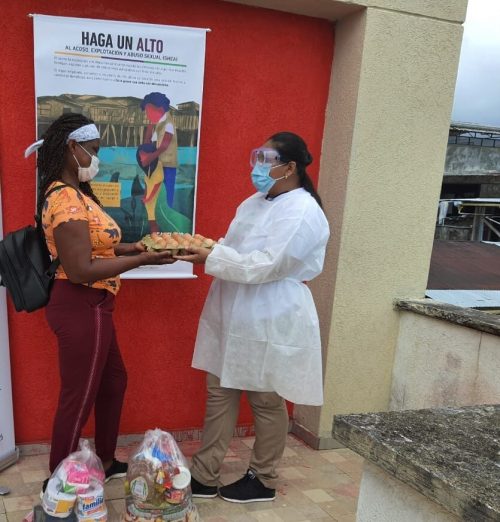
In addition to the WhatsApp reporting line, program participants can also report instances of SEA directly to a trusted staff member or via email. To ensure that complaints are handled properly, HAI trains staff and partner organizations on PSEA, which includes an orientation of HAI’s Code of Conduct, how to identify cases, and how to refer SEA cases to local humanitarian PSEA networks. Staff working in humanitarian tents are trained to understand the specific SEA risks involved in the delivery of kits, food packages, and the provision of direct services.
Likewise, HAI has designed resources to raise awareness of SEA among migrant populations. To ensure communities are aware of reporting mechanisms, each humanitarian assistance kit and tent provided to refugees and migrants is equipped with PSEA materials and resources that inform program participants about expected behaviors of humanitarian workers and how to report incidences of SEA.
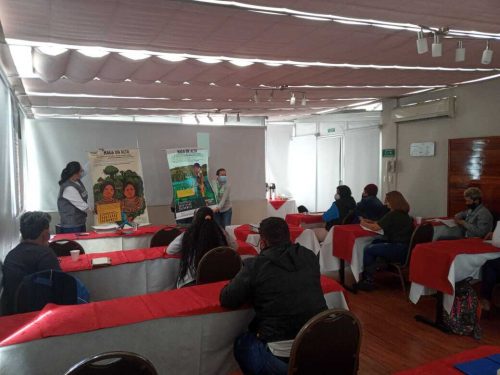
This approach helps inform refugee and migrant populations of their right to receive humanitarian assistance free of stipulation and how to report an incident when SEA does occur. It also ensures that humanitarian workers know the proper steps to follow if they are alerted to an SEA incident. Together, this multi-faceted approach helps guarantee that SEA incidents are properly handled and that survivors receive proper support.
PSEA strategies like HAI’s help to ensure that refugees and migrants are not only protected against SEA, but that they are also empowered to report when SEA does occur. On World Refugee Day, it is essential that we work together to ensure that refugees are protected from additional harm while seeking safety. If you or your organization would like resources to PSEA in your organization, please reach out to Meriwether Beatty or visit InterAction’s Resource Library.
